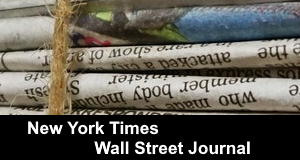Policy
The University of Michigan-Dearborn's Mardigian Library may collect some data about your library use in order to improve services and to integrate with broader University teaching and learning initiatives.
See the User Privacy Policy - Frequently Asked Questions (FAQ).
Commitment to Privacy and Confidentiality
We are committed to protecting the privacy and confidentiality of all patron data in compliance with federal and state laws, University policy, and professional standards (e.g. American Library Association).
Library data is considered an institutional asset and may be accessed and used only by authorized university entities according to procedures identified by the University. No person or entity may access library data, except through strict policy and processes established by the University and in compliance with Michigan law.
Data Collection
Library Systems
When you use library applications, systems, and websites, you generate data. We use and store these data to provide and improve services and resources.
Third Party Vendors
The Library does license services and/or content from third party vendors who have their own privacy policies and confidentiality practices. When you leave the library website, your interaction with these systems will be governed by their individual privacy policies. Check the privacy statements for specific vendors to learn how your data is stored and used by them.
Google and Your Privacy
The UM-Dearborn Library also uses Google Analytics (including the use of demographics and interest reports), a web analytics service provided by Google, Inc. ("Google") to help understand how U-M Library websites are being used and to improve our interface and services. Google Analytics operates through the use of a cookie, which is a text file placed on your computer that contains information about your use of U-M Library websites. The information stored in the cookie (including your IP address) is transmitted to and stored by Google.
The UM-Dearborn Library uses this information for analytical and feature-improvement related purposes only. We do not transmit any information to other third parties. More information about Google Analytics and Google's privacy policy is available.
If you choose, you can opt out of Google tracking by using one of the following methods:
Approved June 15, 2020 by Leadership Team



